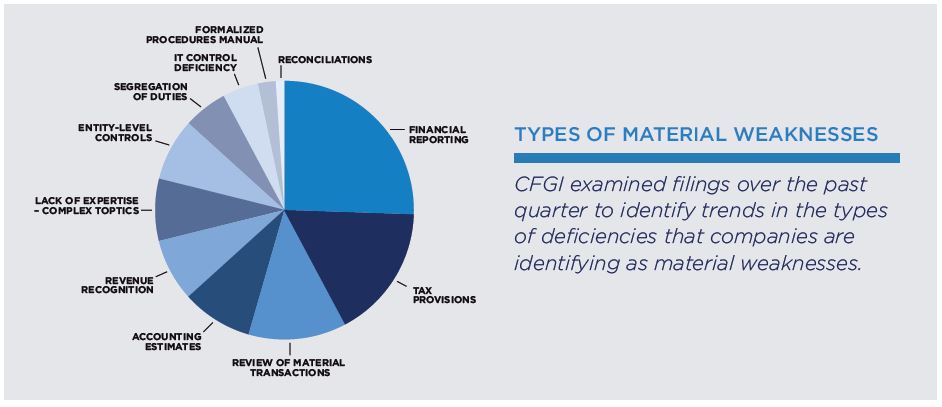A material weakness is when a control is missing, designed improperly, or not operating effectively such that a material error could exist in the financial statements. It is the most severe classification of a control deficiency and requires disclosure in the financial statements, as well as reporting to those responsible for governance. Given the additional scrutiny on controls from an audit perspective, CFGI examined filings over the past quarter to identify trends in the types of deficiencies that companies are identifying as material weaknesses. Detailed below are three of the most prevalent issues resulting in material weaknesses:
INADEQUATE CONTROLS AROUND FINANCIAL REPORTING.
Controls around the reporting of financial information are just as important as the controls to make sure financial information is recorded properly in the first place. Companies have identified material weaknesses primarily in the area of review of financial statement disclosures. Either disclosures were not prepared by employees with the requisite knowledge or companies lacked formalized controls around reviewing the financial statement disclosures.
TAX PROVISION.
Companies that reported material weaknesses struggled with the design and operation of controls covering the completeness and accuracy of the tax provision. Many companies recognized that they do not have the proper personnel in place to ensure that the process was properly controlled and misstatements would be identified. Companies found they needed more people involved in the process, as well as people with technical expertise in the area.
REVIEW OF MATERIAL TRANSACTIONS.
The control environment at companies is typically designed around recurring processes and procedures. CFGI identified numerous circumstances in which companies did not have control procedures in place to handle infrequent or one-off situations. These types of transactions are such that companies are forced to react from a control design perspective rather than build out policies and procedures for handling beforehand.
